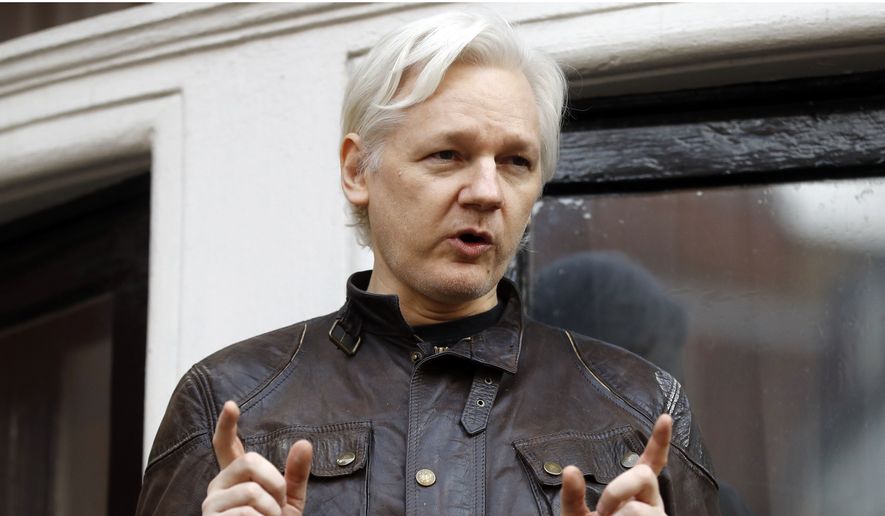A British Foreign Office minster called Tuesday for an end to the impasse surrounding WikiLeaks publisher Julian Assange, a resident of the Ecuadorian Embassy in London since June 2012.
“It is now over six years since the Ecuadorian Embassy has been abused in its purpose as an embassy” Sir Patrick McLoughlin, a Conservative member of the House of Commons, said during a Parliament hearing. “How long does the government care to put up with this?”
Mr. Assange “is in the embassy of his own choice,” responded Sir Alan Duncan, a fellow Conservative and the U.K. minister of state for Europe and the Americas.
“We are, however, increasingly concerned about his health, and it is our wish that this can be brought to an end,” Mr. Duncan said. “And we would like to make the assurance that, if [Mr. Assange] were to to step out of the embassy, he would by treated humanly and properly and that the first priority would be to look after his health, which we think is deteriorating.”
Neither representatives for WikiLeaks nor Mr. Assange immediately returned messages seeking comment.
Mr. Assange, a 46-year-old Australian native, entered the Ecuadorian Embassy in June 2012 while under house arrest in connection with a rape investigation launched by Swedish prosecutors. Ecuador granted him asylum that summer, and Sweden dropped its rape probe in 2017.
British authorities said they will arrest Mr. Assange if he leaves the building since he allegedly jumped bail by entering, however, placing him at risk of being apprehended and extradited to the United States for releasing classified material through his WikiLeaks website.
Supporters of Mr. Assange have argued his health has worsened since seeking refuge, but a British judge found otherwise in February when she issued a ruling upholding his U.K. arrest warrant.
“Mr. Assange is fortunately in relatively good physical health,” Senior District Judge Emma Arbuthnot ruled from Westminster Magistrates’ Court. “He has a serious tooth problem and is in need of dental treatment and needs an MRI scan on a shoulder which has been described as frozen. I accept he has depression and suffers respiratory infections.
“Mr. Assange’s health problems could be much worse,” she ruled.
Mr. Duncan, for his part, has previously showed little care for Mr. Assange’s condition.
“It’s of great regret that Julian Assange remains in the Ecuador Embassy,” Mr. Duncan said in March. “It’s about time that this miserable little worm walked out of the embassy and gave himself up to British justice.”
Australian officials, meanwhile, paid Mr. Assange a rare visit earlier this month inside the embassy.
“The Department of Foreign Affairs and Trade is providing consular assistance to Mr. Assange through the Australian High Commission in London,” a department spokesperson told The Times. “Owing to our privacy obligations we will not provide further comment.”
• Andrew Blake can be reached at ablake@washingtontimes.com.




Please read our comment policy before commenting.